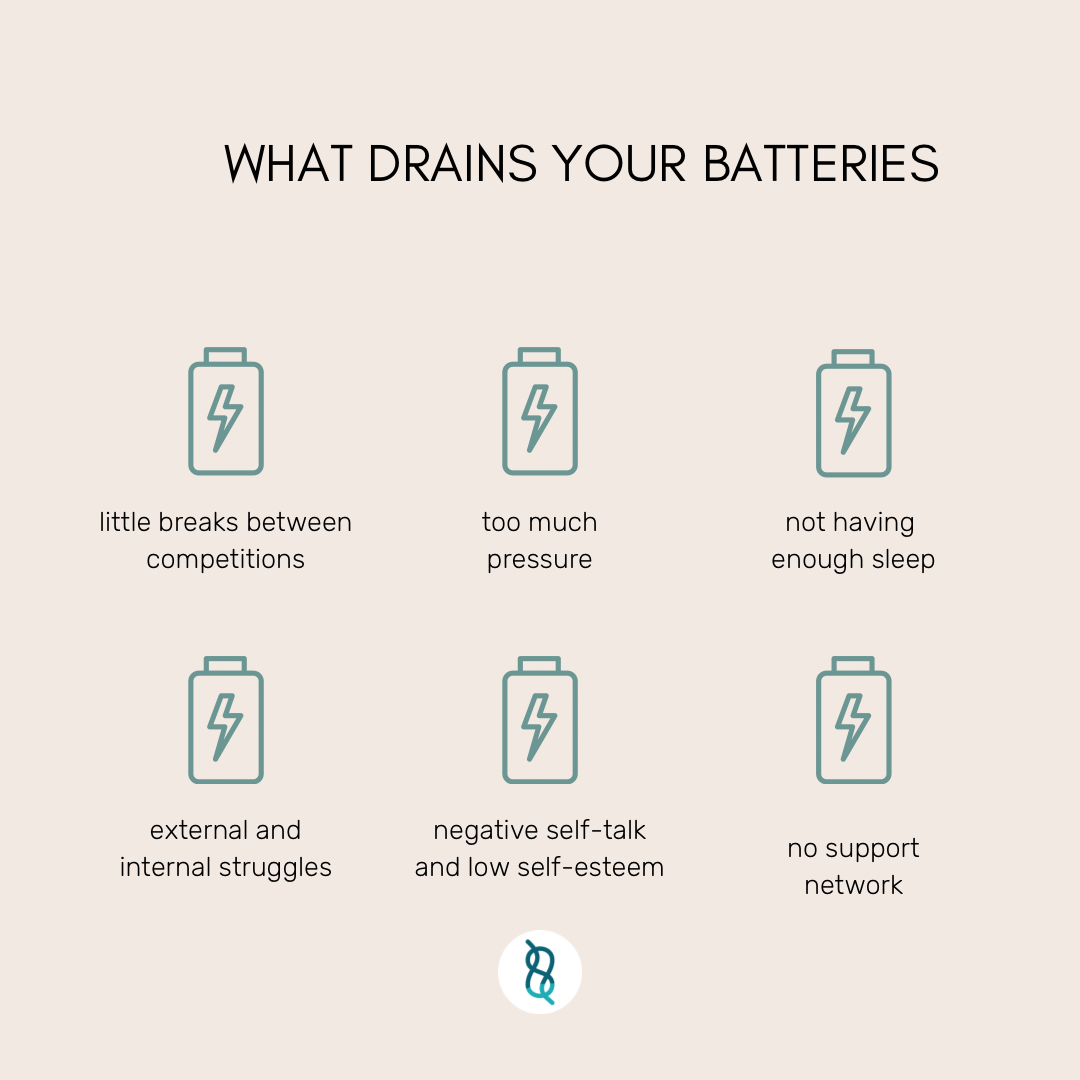WHAT DRAINS YOUR BATTERIES
A comment on the World Cup in Innsbruck – some food for thought.
A couple of weeks ago, I was in Innsbruck to watch all the IFSC World Cup action live and on location. One thing that stuck in my mind after Innsbruck, having had many conversations with climbers and their coaches, was the palpable exhaustion following a marathon of three consecutive long competitions with hardly any breaks (only a few days in between, which also involved traveling from one location to another). First Prague, then Brixen, and finally Innsbruck, with both bouldering and lead competitions. There were instances of bleeding fingers, extreme exhaustion, tears, emotions, and even some individuals falling ill - a clear indication of burnout.
Of course, organizing such events is an incredibly challenging and demanding task. Competitions are always emotionally, physically, and mentally draining, and we all enjoy watching them. However, this year's schedule, without any breaks, has taken its toll.
In this case, it particularly affects the key participants in competitive climbing: the athletes and their coaches, as well as their mental health.
Hannah Meul at the Brixen Bouldering World Cup 2023
Another consequence is that athletes strategically choose to skip certain competitions in order to be best prepared for Bern later in August, which serves as the first Olympic qualifying event. This might be a very wise decision, considering that most athletes also train for combined events and therefore need to allocate time for the lead season. However, this also leaves fans potentially disappointed as they won't get to see their favorite climbers - either because they didn't participate or due to the high likelihood of not qualifying for the semifinals or finals due to exhaustion. I overheard a comment at the Innsbruck World Cup saying, "It's not as fun to watch if there are no stars." Well, we know that's not entirely true. There were still numerous climbing stars competing, but subjectively, this person might have had a different experience. Their favorite climber either didn't compete or didn't make it to the finals, leading to a less satisfying viewing experience.
Here are some questions the organizers might need to ask themselves:
What are the costs they are willing to bear when organizing events so close to each other?
Is it worth risking the athletes' (mental) health and potentially burning them out? Because without them, competitions obviously lose their entire spirit.
Is this the direction we want competitive climbing to take?
We would appreciate hearing your thoughts!


